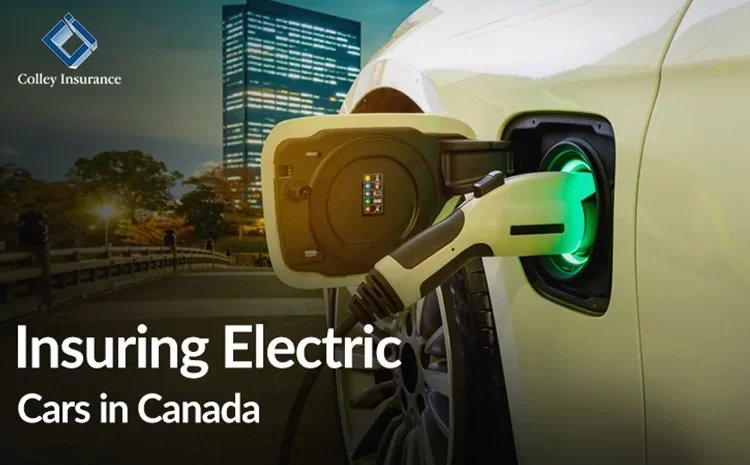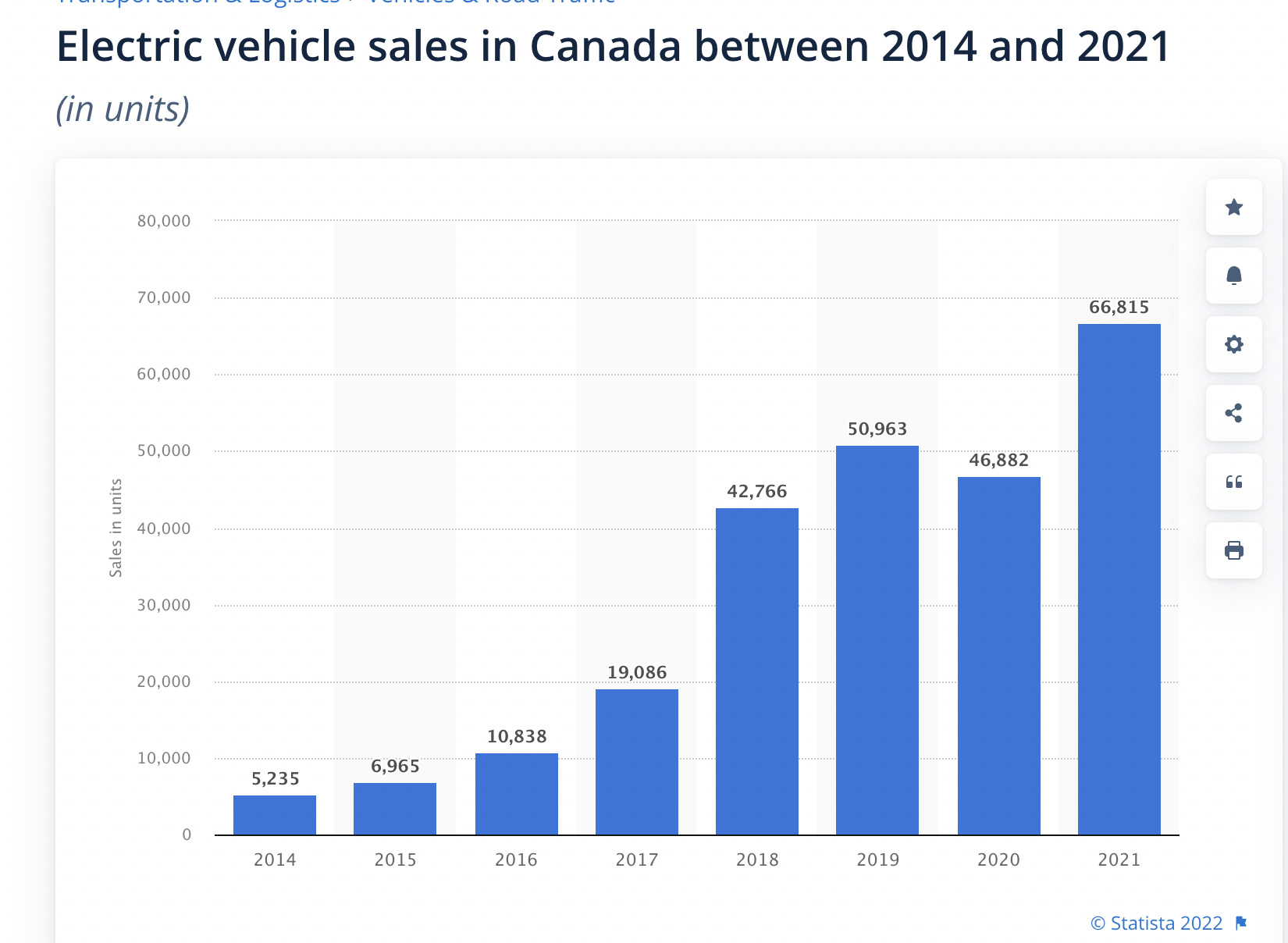
Insuring Electric Vehicles in Canada
Electric Vehicles (or EVs) are becoming more popular every year.
In this blog post, we get into the different type of electric vehicles, the best approach to insuring your EVs and other incentives available in the market right now.
If you are looking to buy Electric Vehicles in the next five years, you would not be alone. According to a 2022 survey done by KPMG, 71% of Canadians would consider an EV the next time they buy a vehicle.

Image Source: KPMG 2022 Auto Poll
If you are in the market for an EV and looking to understand your options and insurance premiums better, you are in the right place.
With that said, let’s get into it!
Electric Vehicles are Experiencing Significant Growth
Demand and growth in Canada continue to grow as Canada’s EV auto dealers sold 66,815 electric vehicles which was a 42.5% increase in 2021 (vs. 2020).
With Tesla being the number one automaker in the world (in terms of market-cap at $1 trillion) and most other car manufacturers betting heavily on electric, zero emission vehicles are becoming popular options.

Image Source: Statista
The Different Types of Electric Vehicles
Electric Vehicles
EVs are fueled by battery instead of gas and have an electric motor instead of an internal combustion engine. EVs do not have any tail pipes, and thereby their emissions are typically less than their gas-powered counterparts.
Plug-in Hybrid Electric Vehicles
A hybrid is a combination of gasoline and electric vehicle in one. Plug-in Hybrid Electric Vehicles (PHEV) have both, an electric motor and an internal combustion engine. Plug-in hybrids use a larger battery that is charged with a 120-volt or 240-volt outlet at your home. They also have a “backup” gas engine and use electric power until its depleted, then switch to the gas engine.
Hybrid Electric Vehicles (HEVs)
These vehicles also have a combination of gasoline and electric motors. Standard hybrid vehicles rely on their gas engines to keep their batteries charged as you drive and use their gas and electric motors interchangeably to maximize your fuel efficiency.
The primary benefit of Hybrids vs. pure EVs is range. With EVs, you can drive only as far as the battery charge lasts versus Hybrids that transition to the gasoline internal combustion engine when the electric batteries are depleted. Although with luxury automakers like Tesla, getting much more range with every charge is becoming more common (For example Model 3 can last up to 576km on a charge).
Now when it comes to insuring EVs or Hybrids, getting insurance for one is certainly just as easy as getting your hands on one but there are some important key differences to note.
Factors That Contribute to Premium Rates for EVs
Insuring an electric car is relatively similar to insuring any other type of car.
Just like insuring a gas-powered vehicle, insuring an electric vehicle depends on the model, make, driver history, where you live, the type of coverage you choose and your deductible rather than what type of fuel the car uses.
Some insurance companies offer discounts for EVs and unique coverage options such as free towing for dead EV batteries and coverage for loss or damage to your charging cable or station.
Get a Quote Before Purchase
Our recommendation at Colley Insurance is to get a quote from us or any other reputable insurance broker before purchasing the vehicle. This will allow you to plan your monthly or annual cash flows needed to drive the electric vehicle and help you determine if it is on budget.
To get a reliable quote, we would simply need a VIN number and we will be able to turn around a precise estimate as this factors in the make, model, year, type of vehicle (luxury or entry level).
For example, a Nissan Leaf will command a much lower insurance premium vs. Tesla Model Y. This is because a Tesla would fall into the luxury category and thereby demand a higher parts replacement costs and more specialized labour.
Other incentives for EVs
There is a federal government incentive for a $5,000 rebate. This incentive can be applied when you buy or lease a Zero Incentive Vehicle (ZEV). Shorter range plugin hybrids are only eligible for $2,500 rebate.
The government is particular about which vehicles are considered ZEVs and not all electric vehicles qualify for this rebate, so do check out if the vehicle you are shopping is included in this government incentive program. You are also only able to take advantage of this incentive if it is a brand-new vehicle (i.e. not a resale).
You can learn more about government incentives here.
Reach Out
Hopefully, this blog helps you in your journey when looking to make a leap into EVs. There are many options out there. At Colley Insurance, we want to make your EV insurance shopping process as smooth as possible. If you still have any questions, reach out anytime.

